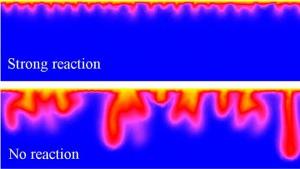New Jersey's Department of Environmental Protection employees are busy this spring stocking many lakes and ponds with thousands of unique species of fish.
A property management company and four owners of rental properties in and around Holyoke, Mass., face EPA penalties of up to $16,000 per violation for violating federal lead-based paint disclosure rules.
EPA honored the Bakersfield, Calif., Independence High School Falcon Autistic Solar Team (FAST) with this year’s President’s Environmental Youth Award in recognition for promoting environmental awareness.
A study by Duke University researchers has found high levels of leaked methane in well water collected near shale-gas drilling and hydrofracking sites.
Dow Water & Process Solutions’ seawater reverse osmosis (SWRO) facility in Kurnell, Australia, won the Desalination Plant of the Year award, which is given for the most technical achievement in the industry.

Despite the dry climate, the Omni hotel in Fort Worth, Texas, has installed a rooftop herb garden on one of its terraces shaded from the hot summer sun.
Tests of a new antibody-based “biosensor” developed by researchers at the Virginia Institute of Marine Science show that it can detect marine pollutants like oil much faster and more cheaply than current technologies. The device is small and sturdy enough to be used from a boat.

The presence of even a simple chemical reaction can delay or prevent the spreading of stored carbon dioxide in underground aquifers, new research from the University of Cambridge has revealed.
Connecting expertise across several colleges, Michigan State University is leading efforts to build international understanding of food safety in the interconnected food supply chains that stretch around the world.
Overall, the findings suggest that reducing phosphorus pollution will require broad adoption of practices that limit nutrient runoff, such as cover crops, buffer strips, and incorporation of fertilizers. It will also require limits on phosphorus discharge from cities.
Plants that digest toxic waste, parks built from old building materials, trees that lower utility bills and many other sustainable concepts are part of a free educational resource from the American Society of Landscape Architects.
Researchers at the University of Southampton have designed a new pricing mechanism that could change the way in which electric vehicles are charged.
A Salem, Mass., dredging company has agreed to pay a penalty of $105,000 to settle EPA claims that it improperly disposed of dredged sediments.
EPA recognized three Pennsylvania schools and an individual in the Schuylkill River Watershed for developing educational environmental projects that help protect drinking water.
Central Valley Grocery gas station in Poulsbo, Wash., has agreed to pay $11,356 for failing to properly monitor three underground storage tanks (USTs) for leaks for more than a year.
Oak Ridge Associated Universities (ORAU), a consortium of 98 doctorate-granting universities, has selected Rosenthal to receive the Ralph E. Powe Junior Faculty Enhancement Award to pursue the novel research. Rosenthal is one of 30 award winners nationwide.
Waste Management Inc. is developing a new organics facility in Apopka, Fla. The facility will process yard, food and clean wood waste to create value added soil amendments.
The recent nuclear accident in Fukushima Daiichi in Japan has brought the nuclear debate to the forefront of controversy. While Japan is trying to avert further disaster, many nations are reconsidering the future of nuclear power in their regions.
In what is regarded as significant breakthrough for energy companies working in Pennsylvania's Marcellus Shale Play, Clean Streams LLC offers a time- and money-saving solution to simplify wastewater treatment and recycling.
This expansion of organic recycling services and products will be beneficial to the company's residential, commercial, and industrial customers seeking to convert their organic wastes into products such as compost, mulch, and organic soil amendment.